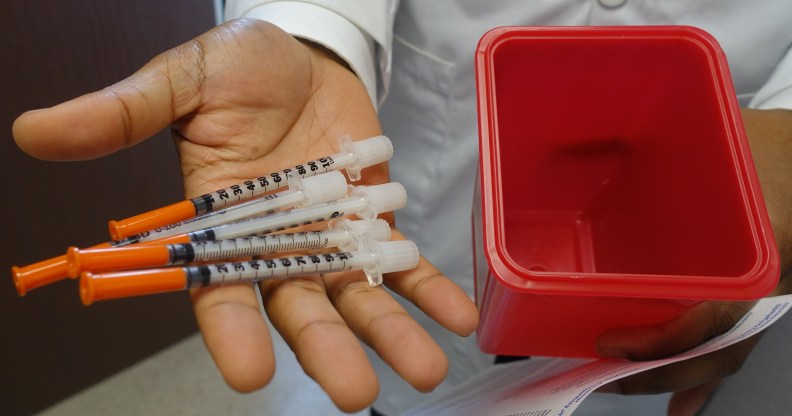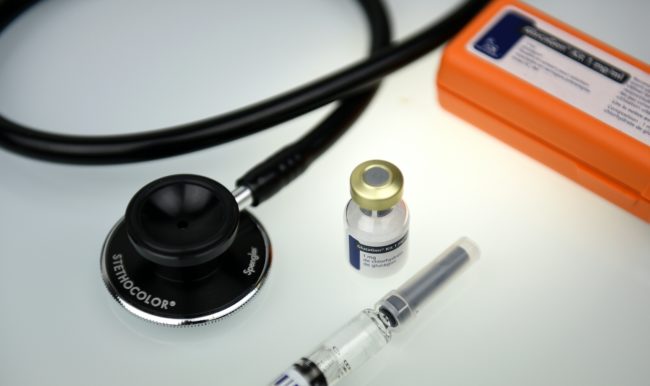Once-a-month HIV injection treatments pass initial trials

HIV
A monthly injection to treat HIV works just as well as daily pill regimens, according to findings of two initial trials.
The results of two ViiV Healthcare trials, presented at an HIV research conference in Seattle on March 7, showed that an injectable antiretroviral treatment was just as effective as existing pill-based methods.
The company says that an initial trials shows that the long-acting, once-a-month injections are effective “compared to a [standard] daily, oral three-drug regimen.”
Patients prefer HIV injection treatment to daily pills
The treatment also proved extremely popular with HIV-positive people on the trial, with the injection replacing daily antiretroviral pills and freeing them from keeping up the drug regime.
The study found that “nearly all participants who switched to the long-acting injectable regimen preferred it over their previous treatments.”

File photo of a syringe (FRANCK FIFE/AFP/Getty)
ViiV Healthcare’s Chief Scientific and Medical Officer Dr John Pottage Jr said: “If approved, this [treatment] would give people living with HIV one month between each dose of antiretroviral therapy, changing HIV treatment from 365 dosing days per year, to just 12.”
Pottage confirmed the research will move forward, adding: “We look forward to submitting applications to regulatory authorities later this year.”
Dr Chloe Orkin of Queen Mary University of London said: “This long-acting, injectable two-drug regimen may provide an opportunity to change the paradigm for people living with HIV by breaking the cycle of a daily pill, which has been a defining characteristic of HIV therapy for several decades.”
HIV injection treatment ‘could be life-enhancing for many’
Campaigners also welcomed the move, noting that patients who struggle to keep up with a daily pill regime may find the once-a-month treatments easier.
Kat Smithson of National AIDS Trust said: “Constantly improving treatments for HIV have revolutionised the lives of people living with this condition.
“The potential for HIV to be successfully treated with an injection repeated every month, rather than pills taken every day, could be life-enhancing for many people.
“It will help with adherence to medication and allow people with HIV to get on with their lives.
“Although we are some way off this treatment being available to patients, we are excited about the potential for this to improve life for people living with HIV.”
Other research presented at the conference showed that the use of HIV-preventing drugs by gay and bisexual men faces a huge racial disparity in the US.
The Centers for Disease Control and Prevention warned that the use of pre-exposure prophylaxis among black and Latino men was significantly lower than for white men.

